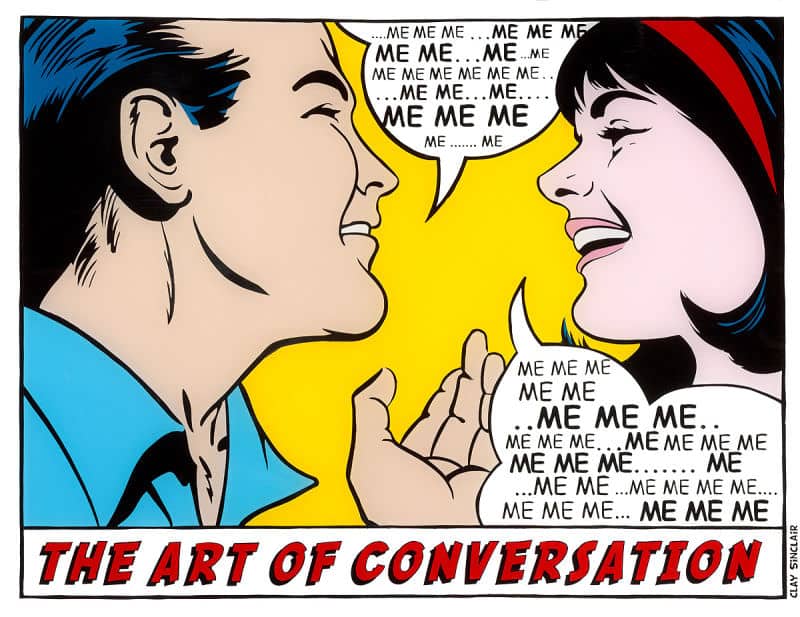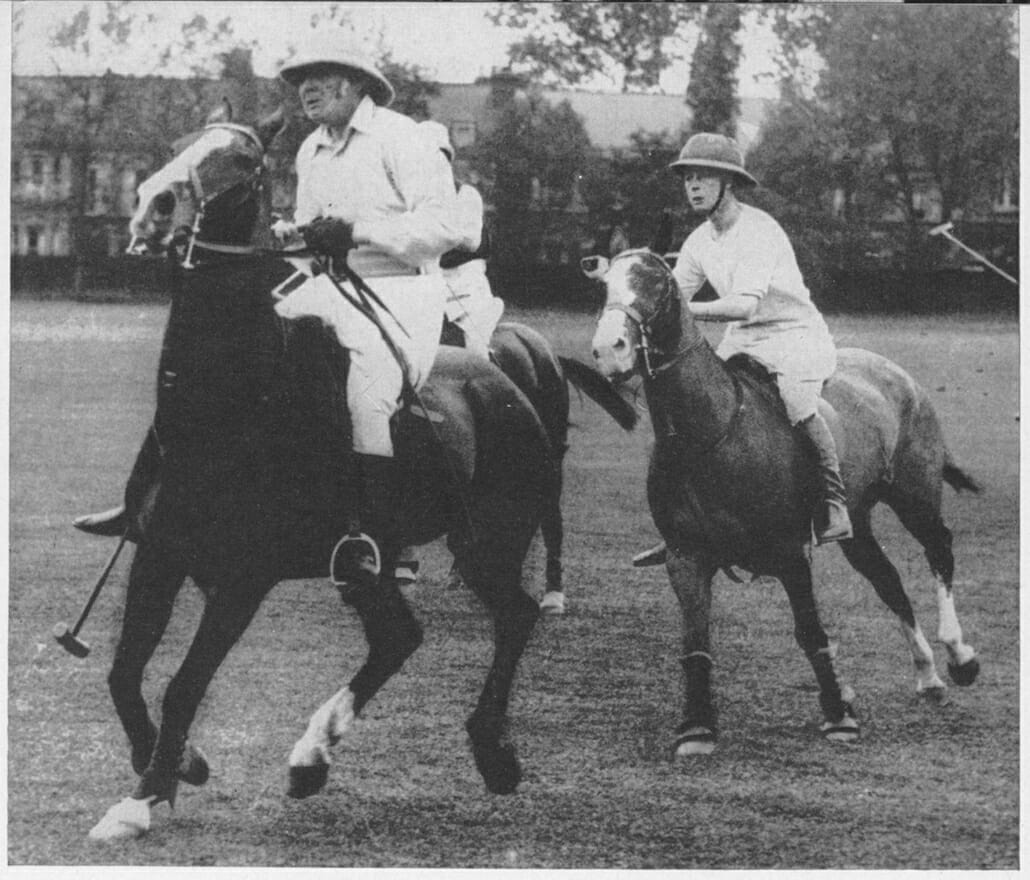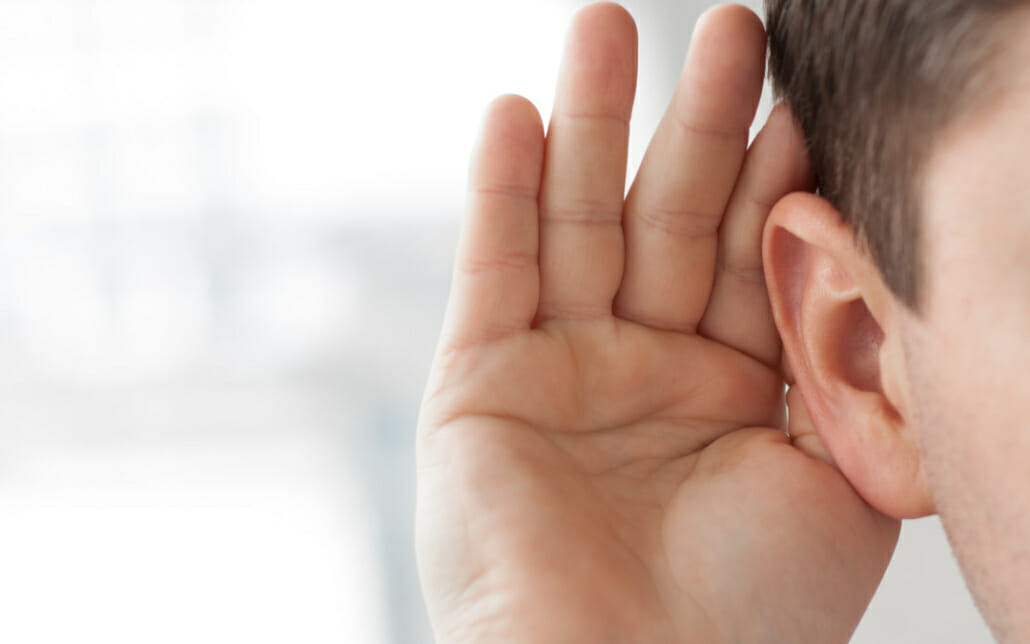It’s no secret that socializing seems to come more naturally to some people than to others; there are those who can effortlessly command anything from a small group of friends to an audience of hundreds, and those who will dread for weeks any upcoming social gathering. Part of this will have to do with whether a person is introverted or extroverted by nature–but this isn’t the only piece of the social puzzle to consider here. Even if you consider yourself to be outgoing, you may still be unaware of a number of social gaffes that are causing others to look upon you less positively.
- Mistake #1: Assuming an Incorrect Level of Interest
- Mistake #2: Failing to Make the Conversation Accessible
- Mistake #3: Not Asking Enough Questions
- Mistake #4: Not Making Enough Eye Contact
- Mistake #5: Not Valuing Your Own Personal Hygiene Enough
- Mistake #6: Trying to Force Humor Into a Conversation
- Mistake #7: Being self-deprecating.
- Mistake #8: Attempting to Dominate the Flow of Conversation
- Mistake #9: Being a Poor Listener
- Mistake #10: Not Ending a Conversation
- Mistake #11: Failing to Pick Up Subtle Social Cues
- Mistake #12: Giving Closed Answers or Asking Closed Questions
- Mistake #13: Making Assumptions About Other People
- Mistake #14: Framing Your Conversations Around Negativity
- Mistake #15: Having Poor Party Etiquette
- Conclusion
- Outfit Rundown
We have listed 15 of the most typical mistakes people will make in social situations, and we’ll tell you how you can improve your conversational skills over time.
Mistake #1: Assuming an Incorrect Level of Interest
There are two sides to this point, and both of them can be equally embarrassing; the first is assuming that people are interested in what you’re talking about when in fact, they aren’t. This can lead to you prattling on for minutes on end while everyone else’s eyes eventually glaze over. The flipside of this point (and one that comes naturally to more shy people) is assuming that people have no interest in what you might have to say when in fact, they do. This will often manifest itself in you giving very short answers and not contributing much to the conversation as a whole.

In either case here, it’s important to read the body language of your conversational partners to see how they’re responding, and to judge the quality of their verbal responses when they do start to talk. Extroverts should keep in mind that conversation is meant to be accessible to everyone involved, and introverts should remember that their input is valued as well. If you’re talking to people whom you don’t know well, try to bring up topics of conversation that are widely accessible to many. If you do want to bring up something specific, go for it–but keep your answer to a reasonable length and don’t prattle on endlessly.
Mistake #2: Failing to Make the Conversation Accessible
The easiest way for you to make a conversation accessible, as we’ve already mentioned, is to bring up topics that are fairly wide in scope that anyone could latch onto. Or, you could bring up a larger number of topics. The easiest way to do this is to simply get out and do more things on your own; for example, pursuing more hobbies like taking up a sport or a craft. If you have a wider range of personal experiences, you can bring up more topics in conversation and, therefore, try to get everyone involved.

You’re Making These 10 Mistakes When Speaking on the Phone
Mistake #3: Not Asking Enough Questions
Questions serve a very valuable role, as they allow your conversational partners to bring up experiences that are personally valid to them, and also give them time to reflect. There are various small talk questions, of course, like a simple “How are you doing?” or “What do you think of this weather?” But if you’d like to have a richer and deeper conversation, asking a question that’s more in-depth and that hits at your conversational partner personally will be your best bet.

Mistake #4: Not Making Enough Eye Contact
Now, upfront, we’ll just say that this tip is something that takes deliberate practice, and even some socially confident people can struggle with it. A simple guideline for casual conversation is to try to make more eye contact with a person when they’re speaking to you. Then, when you’re speaking to them, break eye contact every once in a while to glance at your surroundings. Also, do keep in mind that the amount of eye contact a person provides and expects to receive can vary somewhat based on the culture in which they were raised. As we said before, practice and self-awareness will be your best bet here.

Mistake #5: Not Valuing Your Own Personal Hygiene Enough
Simply stated here: if you’re not doing things like bathing, trimming your nails, getting your hair cut, wearing clean clothing, or wearing clothing that fits you well, people will automatically look at you more negatively. More than an in-the-moment perception, they’ll also form long-standing assumptions about you, and how clean (or unclean) of a person you might be. Never fear, though, because we’ve also produced a wide array of content on personal grooming; for example, you can find our recent series on hair care and skin care here.

Mistake #6: Trying to Force Humor Into a Conversation
Now don’t get us wrong, a little bit of humor when talking to others can be a great way to make things less serious and to put everyone in a good mood. However, repeatedly trying to make your own sense of humor dominate the conversation and constantly making jokes that aren’t well received by your conversational partners is indeed a mistake. Remember that humor is a skill that should be developed gradually over time, and not rammed down the throats of your conversational partners.

One day, you may find yourself saying something in conversation that you didn’t even necessarily mean to be funny–but if others laugh, it will probably increase your self-confidence and make you more aware of the type of humor your conversational partners are looking for. And on the subject of humor, don’t make jokes that belittle or put-down other people. There is such a thing as giving someone a hard time, of course, but this should be limited to people you know very well and done in more private situations. Don’t build yourself up by making others feel small, as that’s not behavior that’s becoming of a gentleman.
Mistake #7: Being self-deprecating.
In contrast to jokes that make fun of others, making a joke every now and again that pokes fun at yourself can be a way to make you look more humble–but if you’re constantly talking about how terrible you are at everything, people are eventually just going to start feeling awkward around you, because they’ll feel sorry for you, guilty, or something similar. One need look no further here than the words of the famous author C.S. Lewis, who once said, “A really humble man will not be thinking about humility; he will not be thinking about himself at all.”

Mistake #8: Attempting to Dominate the Flow of Conversation
This point does tie into our first mistake about saying too much or too little–but here, we’re talking more about a situation in which you might find something great to say, but before you can get it out there, the conversation moves in a different direction. It’s never fun when this happens, of course, especially if you think you’d have gotten a great reaction out of your conversational partners, but if all you’re doing is trying to force somebody back onto a topic that has already passed, you’re eventually just going to be met with silence or awkward stares. It’s best to just go with the flow of conversation, and be confident in the knowledge that you’ll probably have another opportunity somewhere down the line to make the point you were thinking of.

Mistake #9: Being a Poor Listener
As you’re probably aware, listening is a crucial skill in any conversation. However, some people may not really understand the difference between simply hearing and actively listening. What we mean by this is, if all you’re doing is waiting until the other person is finished talking to try to make your point, or simply parroting back exactly what they just said without adding any nuance, you’re really just hearing them and not listening actively.

To be an active listener you not only have to wait your turn to talk, but also respond to the point that was just made with something truly insightful (or with a good question). As we talked about previously, if all you’re doing is parroting or steamrolling over the other person, they aren’t going to feel heard or valued. And on that note, this may almost rise to the level of being its own point on this list, but: don’t constantly interrupt people or simply try to talk over them. Conversation is a two-way street, and it means that everyone should get their own time to shine.
Mistake #10: Not Ending a Conversation
This means either not ending a conversation properly, or not ending it at all. Even if you’ve found that a conversation you’re having has gone very well, there is a natural time for all conversations to come to an end. After all, it’s impolite to keep people waiting if they’ve got somewhere else to be. In other words, it’s important not to take people hostage conversationally.

You can tell a lot by someone’s body language; if they’re looking to exit a conversation, they may start shuffling their feet, looking around, or even giving you verbal cues like, “Well I really should be going now,” and so on. In these situations, do try to pick up on the cues that are being laid out for you and bring the conversation to a natural end. Say something like, “Absolutely, I won’t keep you any longer,” and then end the conversation gracefully.
Mistake #11: Failing to Pick Up Subtle Social Cues
It’s also equally important to remember that you’re sending signals by using your own body language. For example, try not to squint at your conversational partners while talking, as this may come across as you looking angry or dismissive. Conversely, you don’t need to have a giant smile the entire time, but do try to practice in the mirror at making a natural smile so that your conversational partners will feel welcome. Good posture can make difference as well, and you should try to be aware of your own volume levels, because nobody likes a literal loudmouth.
It’s also important to be mindful of the personal space of your conversation partners. After all, things aren’t going to flow properly if you’re looming over someone or pressed right up against them. If you struggle to pick up on social cues for any reason (such as, for example, being on the Autism spectrum), find someone you trust and have a private conversation with them about how to build up your perception of these cues moving forward. On the flip side, if you know someone who struggles to pick up these social cues, be patient and kind with them, but never patronizing.
Mistake #12: Giving Closed Answers or Asking Closed Questions
If someone asks you a yes-or-no question, and you respond only with the single word yes or no, that’s a dead weight on conversation. Try to give a response to a question that has a bit more detail to it. For example, if someone asks you “Do you like to read?”, you could respond “Yes, I just finished a great book on architecture.” Your response here is short and sweet, but it does give your conversational partner something to latch onto and move forward. Conversely, try to avoid asking closed questions (which are essentially yes-or-no questions). Using the same example, instead of asking “Do you like to read?”, you could ask “What’s the most interesting thing you’ve read recently?”
Mistake #13: Making Assumptions About Other People
We can use one of the most classic and egregious examples here: asking a woman when her baby is due, only to find out that she’s not actually pregnant at all. Obviously this is a fairly significant example, but lower-stakes assumptions can lead to negative conversational outcomes, as well. Whatever the case may be, if you’d like to get to know more about someone, ask them questions that allow them to respond naturally and comfortably, rather than assuming something and then asking a leading question.
Mistake #14: Framing Your Conversations Around Negativity
The way in which you frame your words is going to have a direct impact on how other people perceive you. For example, if the only personal information you offer up is about what books, movies, and foods you hate, you’re probably going to come across as negative and even combative. In simplest terms here, try to define yourself by the things you like, not the things you don’t. Along similar lines, don’t be the person who’s constantly stopping someone in conversation to correct them, or the person who’s constantly contradicting everyone else’s points. After all, it’s never good to make someone purposely feel unintelligent, especially in front of others. If you really do feel the need to correct what you’ve perceived as a mistake someone has made, doing so in private and one-on-one will be your best course of action.
Another type of negative framing involves only focusing on your own insecurities. For example, if you’re worried about people looking at a blemish you’ve got on your chin, it’s probably not a good idea to begin conversation by just saying “Isn’t this thing huge?” After all, it’s good to remember that we all fall prey to these kinds of embarrassments every once in a while, and the best thing that you can do is just try to let it go and have conversations with some degree of confidence.
The excessive use of curse or swear words can also paint a topic as negative. That being said, under certain circumstances, it can be possible to curse like a gentleman; as you might expect, this possibility is heavily dependent on time and place.

A related point here, if you do happen to do something like pass gas in front of other people, have a constantly growling stomach or so on, the best thing to do is simply apologize once, maybe add in a small amount of good natured humour and then let it go. Dwelling on the negative is only going to make things more awkward for everyone in the long run. Finally with this point, as the saying goes, perception is reality. If you happen to start every business presentation you give with “I’m sorry, I’m so awkward,” then everyone will immediately be thinking that you are, in fact, an awkward person. When it comes to confidence, the best advice that we can give is simply to try to fake it until you make it.
Mistake #15: Having Poor Party Etiquette
This is really more of a general category than one specific point, but we figured that it did warrant mentioning here. As such, here are a few things to keep in mind when you’re a guest at a party. Firstly, don’t automatically assume that a plus-one is welcome, let alone more people than that. Next, if the hosts have requested an RSVP, make an effort to respond, and don’t simply show up at the time of the party. Also, be sure that you’re dressing appropriately to the level of the occasion. A black-tie party, for instance, does require adherence to that dress code and not just shorts and a t-shirt. Finally here, do be aware that you should have good table manners as well.
Conclusion
So, what’s the best way to avoid making these mistakes in the first place? The simplest answer here is that conversation is a skill that takes time and practice to master, just like anything else. The more conversations you have with others, the more that you’re going to be able to notice negative behaviors and correct them. Remember that in the long term, it’s not really going to matter as much about what mistakes specifically occur; rather, the most important thing is how you react afterward. As we mentioned before, if you do make a mistake, the best course of action is to simply apologize, perhaps use a little bit of self-deprecating humor, and then move on. In more serious situations, a longer and more heartfelt apology will be best; something like, “I wanted to take a moment to apologize for the things I said earlier this evening. I know that the joke I made was hurtful to you, and it won’t happen again.” Finally, don’t be so hard on yourself! Everybody has awkward moments from time to time, and mistakes do happen. Ultimately, what matters most will be how you react and, in turn, how you grow.
Do you find yourself committing any of these social mistakes? How do you handle the situation, and what have you learned? Share with us in the comments.
Outfit Rundown
Today, I’m wearing a largely neutral outfit that features a few key accents. We’ll start with my jacket, which is blue-grey in color and features an over check in brown and tan. My shirt also features a check pattern but its density is much tighter. It features blue and black checks on a white background. By the way, if you’d like to learn more about checks in menswear, you can find our article on that subject. My trousers, as well as my socks, are both taupe in color to bring out the color of the over check in the jacket.
My shoes today are brown cap toed oxfords from Allen Edmonds. And the elements of color in my outfit today are my accessories. The first is my vintage necktie which features a regimental stripe in orange, green, and tan, and the other accessory in my outfit today is my Fort Belvedere pocket square. It’s part of a new line we’ve just released. This one is a wool silk blend featuring a principal color of moss green. It’s also got printed geometric medallions in black red and blue and it features a contrast edge in eggshell. You can find this all new pocket square, as well as the others in the line and another new line in the Fort Belvedere shop here.







One addition that I would make is to avoid conducting an interview. Too many questions or those that are too personal can make the other person feel like a defendant in court or being interrogated. There is a give and take and if the other person does not ask questions of you, it could be a clue they are not interested in talking. Don’t make the mistake of asking all the questions.
Have something else to talk about.
Greetings from Poland Sven!
My puppa dacks me in public to learn respect and authority. So far all that i’v e lernt is that i’m a fool and perhaps a dork.
Many Thanks. D.Blots
In regards to being an autist and #11, I have learned that simply informing people that I’m not that skilled at picking up clues from body language or polite phrases, and instead asking people to be more blunt has been very helpful. I of course promise that I won’t be offended, which I won’t and explain that they would instead be helpful to me and I will be grateful, which is true.
It has 2 major benefits from my perspective. Firstly I do not have to dedicate a big amount of my mentalt capacity trying to figure all this out, so I can be more present and secondly I free myself from worrying of missing clues, so I can enjoy the conversations much more.
I only do this with people I expect frequent and friendly conversation with. I Especially use it while visiting if there is not a fixed end time for the visit I have trouble figuring out the right time to leave, so I ask my host to be clear about this.
#4: Not Making Enough Eye Contact….yes, I find this difficult, and need to practice a lot. One trick I’ve found very useful is to look at appoint between and just above your interlocuters eye -much more comfortable.
while we’re on the subject…who ever thought it was OK to engage someone in conversation when wearing very dark sunglasses